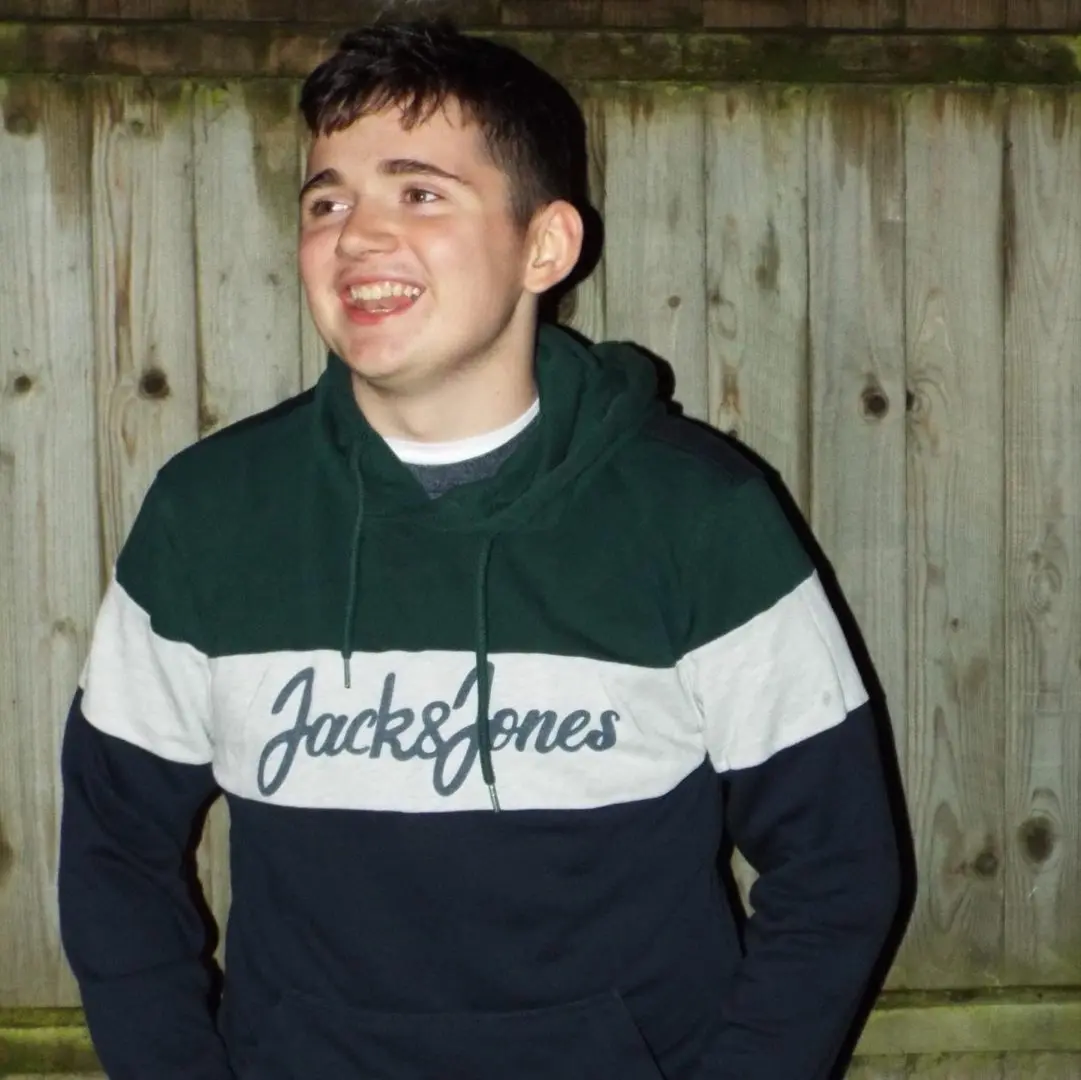Nathan’s story: ‘How would this reflect on me in school?’
Nathan was 15 when he was diagnosed with testicular cancer. He shared his story with us for Men’s Health Week 2021.

Nathan was diagnosed with cancer while he was studying for his mock GCSEs
When Nathan found a lump in his testicle, he already had something to worry about: he was studying hard for his mock GCSEs. When it didn’t go away after a few days, he told his parents and they went to see their GP. He was then referred to A&E, and after seven hours there, they got the diagnosis.
“Cancer had crossed my mind because as a teenager, I research everything so the first thing I thought was, ‘This hasn’t gone away, so let’s research and see how bad it could be.’”
Despite his research, the diagnosis was still a shock.
“I sat there quietly, not knowing what to say. My dad, bless him, he was quite upset because he lost his dad to cancer. It got to him so he started crying and that set me off.”
Nathan had surgery a week after his diagnosis. He then timed his chemotherapy with the upcoming February half term, as he wanted to be out of school for as little time as possible.
“The wait between surgery and starting chemo was hard because I always knew it was coming. I was just anticipating and waiting and I had a lot of time to think about it. But at the same time, I chose to do it that way round as I wanted it to tie into school so it affected as few things as possible.”
Going to school during treatment was difficult, and Nathan found he didn’t have the energy to spend the whole day there. He wasn’t able to do PE and couldn’t focus in class to begin with, but this improved over time.
“Anyone close to me would say that one of my biggest worries was how this would reflect on me in school. I feel like it reflected badly in a way but I still did my best to be there at least for a part of every day.”
Nathan started a course of chemotherapy the week before February half term. This meant spending seven to eight hours in hospital every day for three days. After day two, the side effects of the chemotherapy hit him hard, and he was kept in hospital overnight to make sure he was well enough to continue the treatment. After those first few days, he had a follow-up appointment once a week where he had a two-hour infusion.
When his treatment was finished, Nathan began to think about the impact it had had on him.
“Because my treatment was really quick I never really processed it while it was happening – I just got on with it and did as I was told. I just thought, ‘Let’s get to the other side,’ and never really thought about what I’d been through. Then after treatment, I was like, ‘Actually I’ve been through this really life-changing event, I should probably process it and understand what it did to me.’ My Young Lives vs Cancer social worker Rich explained to me that’s actually what a lot of people do and he was really comforting in the way that he made me see I wasn’t the only one. Rich has always been there for me to get advice from – I feel like I wouldn’t have been able to get through school and I wouldn’t have been able to go through certain times if I wasn’t able to talk to Rich.”
Nathan also found support in his friends, especially during the Covid-19 lockdown.
“I found it extremely hard to build up the confidence to tell my friends I had cancer. I didn’t know how they would react to such a big thing, especially at such a young age. Fortunately for me, when I did build up the confidence to tell them they were and still are incredibly supportive and are always asking how I am, if there’s anything they can do to help and whether I need anything (especially when I was isolating through Covid).”
Now, Nathan is enjoying sixth form college, where he is studying Media, Criminology and Applied Science, and hoping to do an apprenticeship in either the media or science industry. His advice for a young person who’s worried about testicular cancer is to go and see your doctor – and don’t feel embarrassed:
“I would say that feeling embarrassment is normal, but there’s nothing to embarrassed about, you didn’t cause the cancer and speaking to your doctor early can massively increase the effectiveness of treatment. I also think that speaking to your doctor is helpful for you because you aren’t in the dark as much.”
Posted on Monday 14 June 2021